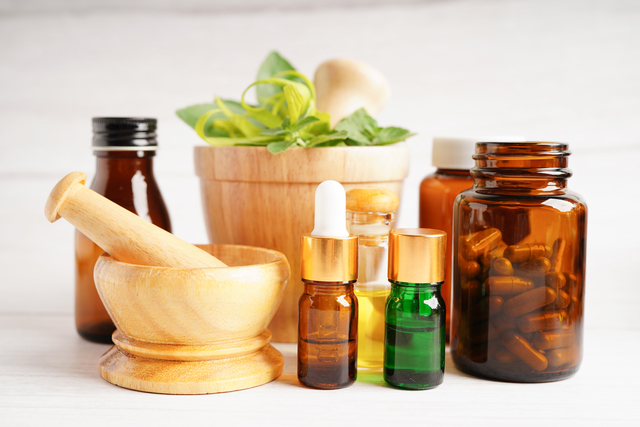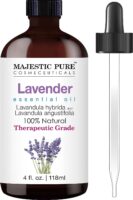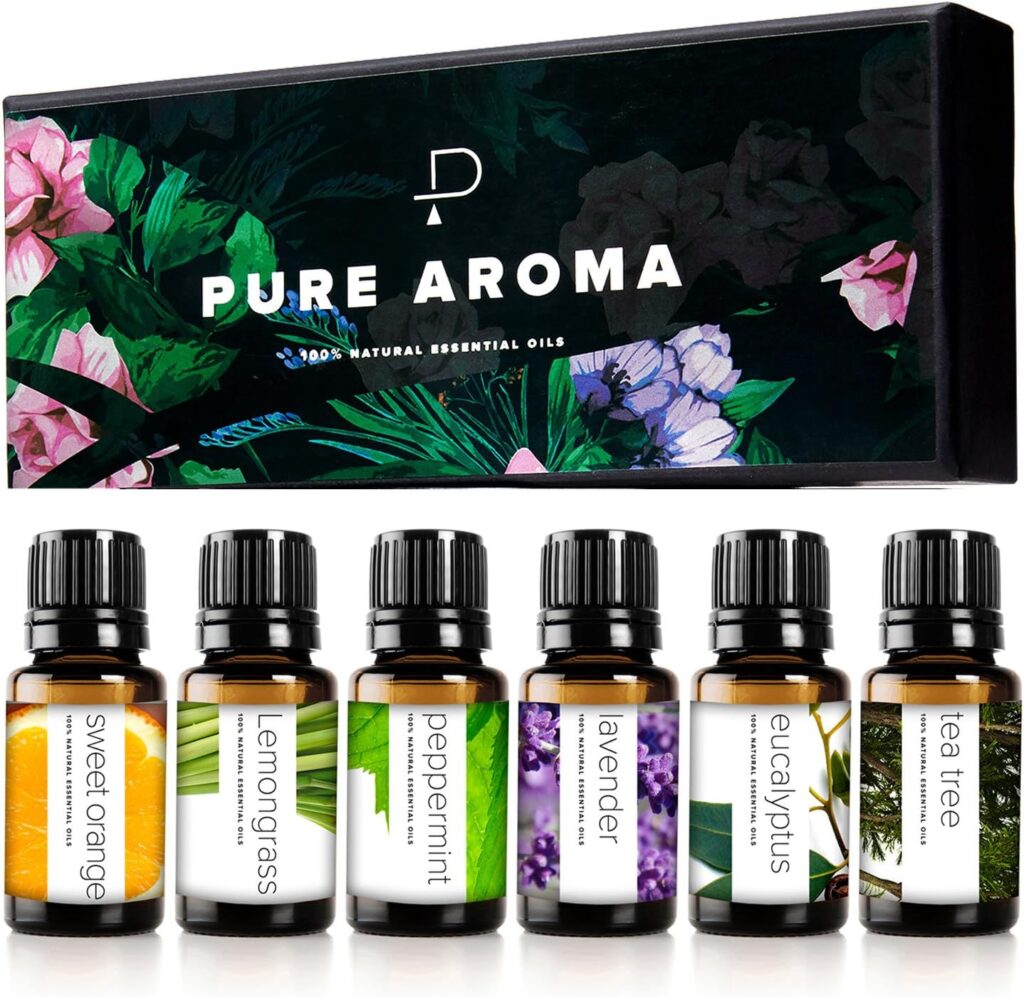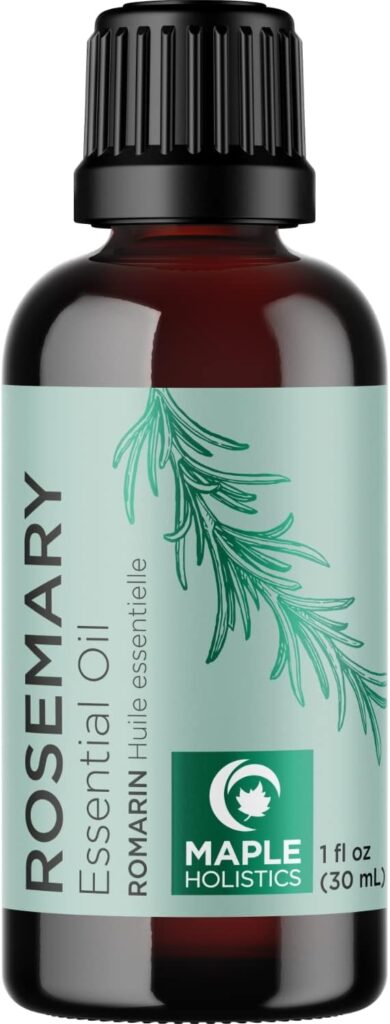Discover the power of natural remedies, often referred to as alternative or complementary medicine and uncover the uses of each group.
These remedies are therapeutic approaches that rely on natural substances and practices to prevent, treat, or alleviate various health conditions.
They have been used for centuries all over the world by different cultures and are based on the belief that the body’s natural ability to heal and maintain balance can be supported through various natural means.
This article explores 10 common categories of these natural remedies.
Herbal Remedies
Herbal remedies provide a holistic and traditional approach for those who prefer natural solutions to address various health concerns
They involve the use of plant-based substances like leaves, roots, flowers, and seeds for medicinal purposes. Plants contain various compounds that can have therapeutic effects, and these are often used to make teas, tinctures, or supplements.
They have been employed for centuries in traditional medicine systems across the world, such as Ayurveda, Traditional Chinese Medicine, and Native American healing practices.
They cover a wide range of applications, from teas and tinctures to topical ointments and dietary supplements. Commonly used herbs include ginger for digestive issues, lavender for relaxation, and Echinacea for immune support.
These remedies are often preferred for their perceived safety and reduced risk of adverse side effects compared to pharmaceutical drugs.
Note that herbal remedies should be used with caution, as they can interact with medications and may not be suitable for all individuals.
While scientific evidence supports the efficacy of some herbal remedies, more research is needed to validate their effectiveness and safety comprehensively.

Diet and Nutrition
Nutritional approaches include using specific foods, dietary changes, or supplements to address health issues. For example, vitamin and minerals are used to prevent or treat deficiencies.
Diet and nutrition serve as powerful natural remedies for maintaining and improving overall health. A balanced and nutrient-rich diet can help prevent a wide range of health issues and support the body’s ability to heal itself.
This approach focuses on harnessing the therapeutic properties of food to promote well-being.
Essential nutrients like vitamins, minerals, and antioxidants found in fruits, vegetables, and whole grains play a key role in maintaining the body’s vital functions.
For example, vitamin C in citrus fruits boosts the immune system, while omega-3 fatty acids in fish and flaxseeds can reduce inflammation and support heart health. A diet rich in leafy greens provides important minerals like iron and calcium, promoting strong bones and overall vitality.
In addition, diet and nutrition can be used to manage and alleviate various health conditions. For instance, a low-sodium diet can help control high blood pressure, while a diet high in fiber aids in digestion and reduces the risk of gastrointestinal problems.
Traditional Medicinals
Traditional medicine like Ayurveda, Traditional Chinese Medicine, and Native American herbalism have long relied on these time-tested treatments to address various health concerns.

The wide range of remedies draw upon the wisdom of generations rooted in cultural and historical healing practices and often use a combination of natural remedies. These include herbs, acupuncture, and dietary guidelines, to promote health and healing.
Herbs like ginger, ginseng, and turmeric are staples in traditional medicinal practices, each believed to possess unique healing properties.
These remedies are administered in various forms, including teas, tinctures, salves, and poultices, with each preparation method tailored to the specific ailment or condition being treated.
Traditional medicinals have gained widespread popularity due to a growing interest in holistic health and the desire for natural, plant-based solutions.
While scientific evidence supports the efficacy of many traditional remedies, their true power often lies in their holistic approach to health, emphasizing balance and harmony within the body.
Use traditional medicinals with caution and consult with healthcare professionals, as they may interact with medications and may not be suitable for everyone.
Homeopathy
Homeopathy is a system of natural medicine that uses highly diluted natural substances, often from plants, minerals and animal products, to stimulate the body’s natural healing mechanisms.
Homeopathy is a holistic system of natural remedies based on the principle of “like cures like.” It was founded by Samuel Hahnemann in the late 18th century and has gained both proponents and critics.
Homeopathic remedies are prepared by highly diluting natural substances, such as plants, minerals, and animal products, to stimulate the innate healing abilities of the body.
The treatment involves the selection of a remedy based on a person’s unique symptoms and constitutional characteristics, aiming to treat the root cause of the ailment rather than just its symptoms. This personalized approach is what distinguishes homeopathy from conventional medicine.
Advocates of homeopathy believe that these highly diluted remedies can stimulate the body’s inner core to promote self-healing and balance. It is often used to address a wide range of health issues, from allergies and skin conditions to emotional disturbances.
Critics on the other hand argue that the extreme dilution of substances makes homeopathic remedies essentially placebos, with no scientifically proven efficacy beyond that of a sugar pill.
Homeopathy remains a subject of debate within the medical community. Some people report positive experiences with homeopathic treatments, while others are skeptical ofand call for more rigorous scientific research to establish its validity.
Physical Therapies
These remedies include physical practices like yoga, massage, and chiropractic care, which aim to improve physical and mental health.
Physical therapies cover a wide range of natural remedies aimed at improving physical well-being and managing various health conditions. These therapies rely on physical techniques and exercises to promote healing, enhance mobility, and reduce pain.

This treatment often administered by licensed professionals, is a common form of physical therapy that helps individuals recover from injuries, surgeries, or chronic conditions by addressing muscle imbalances and enhancing strength and flexibility.
Massage therapy employs manual techniques to manipulate soft tissues, relieving tension, improving circulation, and promoting relaxation. It can be beneficial for stress reduction, pain management, and enhancing overall physical function.
Chiropractic care focuses on the alignment of the spine and musculoskeletal system to alleviate pain, improve mobility, and support the body’s natural ability to heal. This therapy is particularly popular for addressing back and neck issues.
Exercise and movement-based therapies, like yoga and Pilates, promote physical fitness and flexibility, reduce stress, and offer a holistic approach to well-being.
Acupuncture, rooted in Traditional Chinese Medicine, involves the insertion of fine needles into specific points on the body to stimulate energy flow and relieve pain.
These physical therapies are considered natural remedies because they often avoid pharmaceutical interventions and focus on the body’s innate ability to heal.
Always consult with trained professionals to ensure therapies are used safely and effectively to address individual health needs. When employed correctly, physical therapies can be valuable tools for improving physical health and overall quality of life.
Mind and Body Practices
Mind-body practices such as meditation, mindfulness, and relaxation techniques focus on the connection between mental and physical well-being. They can help reduce stress, anxiety, and improve overall health.
These holistic approaches recognize the powerful influence of the mind on the body and vice versa, with the goal of promoting overall well-being.
Meditation, one of the most well-known mind-body practices, involves focused attention or mindfulness to calm the mind, reduce stress, and enhance mental clarity. It has been associated with numerous physical and mental health benefits.
Yoga combines physical postures, breathing exercises, and meditation to improve flexibility, strength, and emotional balance. It’s used to alleviate physical discomfort and stress-related ailments.
Tai Chi, a slow and graceful martial art, enhances balance, coordination, and mental relaxation. It is often utilized by seniors and the elderlyto prevent falls and improve overall mobility.
Biofeedback and relaxation techniques train individuals to control physiological functions like heart rate and muscle tension. This can be particularly useful for managing stress and anxiety.
Aromatherapy
Aromatherapy involves the use of essential oils extracted from aromatic plants to promote physical, emotional and psychological well-being.
These oils can be inhaled, applied topically to the skin, or used in massages. Each oil offers a distinct set of benefits.
The core principle is that the aromas from these essential oils can positively influence the body and mind. Common essential oils like lavender, peppermint, and eucalyptus are used to alleviate stress, reduce anxiety, improve sleep quality, and even address physical ailments like headaches or muscle pain.
The oils can be diffused into the air, added to bathwater, or applied topically after dilution with carrier oils. The aroma stimulates the olfactory system, which is intricately connected to the brain’s emotional and memory centers.
This connection is believed to elicit various therapeutic effects.
While scientific evidence varies for the effectiveness of aromatherapy, many people find it a soothing and enjoyable complement to their wellness routine.
When used mindfully, aromatherapy can be a valuable, natural remedy for enhancing relaxation, mental clarity, and emotional balance.
Exercise caution when using essential oils, as they can be potent and may interact with certain medical conditions or medications.
Hydrotherapy
Hydrotherapy uses water in various forms, such as hot and cold baths, ice, steam baths, and saunas, to alleviate symptoms and improve overall health.
This holistic practice is rooted in the belief that water, at different temperatures and pressures, can have therapeutic effects on the body.
Hot baths, saunas, and steam rooms are commonly used in hydrotherapy to relax muscles, relieve stress, and improve circulation. On the other hand, cold compresses or ice baths can reduce inflammation and pain.
Hydrotherapy can also include contrasting hot and cold applications, such as hot and cold showers or alternating between hot and cold baths. This is thought to stimulate the circulatory system, boost the immune system, and invigorate the body.
While the scientific evidence for certain claims is mixed, hydrotherapy is widely considered a complementary therapy that can offer a range of benefits. It is often used in conjunction with other natural remedies or medical treatments to enhance their effects.
Approach hydrotherapy with caution, especially if you have underlying health conditions. Consulting with a healthcare professional or experienced hydrotherapist can help determine the best approach for your specific health goals.
Exercise and Physical Activity
Regular physical activity is a natural remedy for a wide range of health issues, including cardiovascular health, mental well-being, and weight management and is the cornerstone of preventive medicine.
Exercise and physical activity serve as potent natural remedies for enhancing overall health and well-being, while regular physical activity is a cornerstone of preventive medicine and a powerful means of addressing various health concerns.

Engaging in exercise can strengthen muscles, improve cardiovascular health, and boost endurance. It also aids in weight management, reduces the risk of chronic diseases like diabetes and heart disease, and enhances mental well-being.
Physical activity is a natural stress reliever, promoting the release of endorphins, which help reduce anxiety and depression.
The versatility of exercise is evident in its ability to address a broad spectrum of health issues.
From strength training to aerobic exercise, it can help individuals manage chronic pain, improve flexibility, and even increase bone density, reducing the risk of osteoporosis. Moreover, it plays a key role in maintaining a healthy immune system.
The key to effective use of exercise as a natural remedy lies in finding an activity that suits individual fitness level and interests.
Whether it is walking, swimming, or yoga, regular physical activity is a holistic way to enhance physical and mental health, making it an indispensable part of a wellness-oriented lifestyle.
Consulting with a healthcare professional or fitness expert can help tailor an exercise regimen to meet specific health goals and individual needs.
Nutritional Supplements
Nutritional supplements are natural remedies that provide a concentrated source of essential vitamins, minerals, and other nutrients to address nutritional deficiencies, promote well-being, and manage specific health concerns.
Supplements can include vitamins like Vitamin C, D, and B-complex. Minerals can include iron, calcium, and other various compounds like omega-3 fatty acids, probiotics, and herbal extracts. They are available in various forms, including capsules, tablets, powders, and liquids.
Many individuals turn to nutritional supplements to fill gaps in their diet, especially when their nutritional intake is inadequate due to dietary restrictions, busy lifestyles, or specific health conditions. For example, calcium and Vitamin D are commonly used to support bone health, especially in individuals with limited dairy intake.
While nutritional supplements can offer benefits, use them judiciously and under the guidance of a healthcare professional. Overconsumption can lead to adverse effects, and not all supplements are necessary for everyone.
Reasons for Their Popularity
While natural remedies have their proponents and can be effective for certain conditions, they are not a substitute for conventional medical treatment whenever this is necessary.
In many cases, a combination of these remedies and conventional medicine is the best approach to address health concerns.
It is advisable to consult with a healthcare professional before starting any natural remedy to ensure its safety and efficacy, especially if you have an underlying health condition or are taking other medications.
Ingredients are Common
Many natural health remedies require ingredients that are commonly found at home. For instance, vinegar or mayonnaise can be used to get rid of head lice, which many people already have in their cupboards or refrigerators.
Furthermore, most remedies are simple and straightforward, like mashing a banana and applying it to sunburned skin for an hour.
Wide Range of Options
Another benefit of natural remedies is the wide range of options available. For any medical issue that you are looking to treat, cure, or seek relief from, there are likely to be several natural options to choose from.
Aloe Vera, vitamin E, and ripe tomatoes are just a few examples of remedies that can be used to treat sunburns.
Conclusion – Natural Remedies
While there are many benefits to using natural remedies, there are also some downsides to consider. One major drawback is the uncertainty of their effectiveness. Just because a natural remedy worked for one person, does not guarantee that it will work for you.
However, since many remedies can be found at home, trying them out should not be expensive. Furthermore, there are often several to choose from, increasing the likelihood that at least one will provide relief.
These remedies may not be effective for all medical issues and may take longer to work than medications.
Related Articles
- What Are Good Herbal Remedies for Inflammation? – Herbal Teas
- Natural Ways to Reduce inflammation in the Body
- Natural Herbal Remedies Use – 16 Pros and Cons
- The Truth About Dietary Supplements – Fact vs Fiction
- How to Use Dietary Supplements Properly – Things to Know
- How to Use The Power of 5 Herbal Teas for Arthritis Relief




